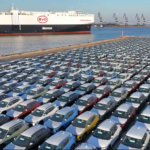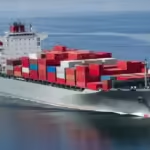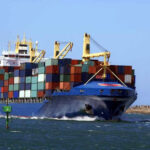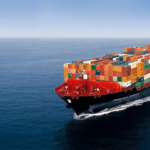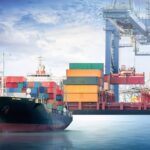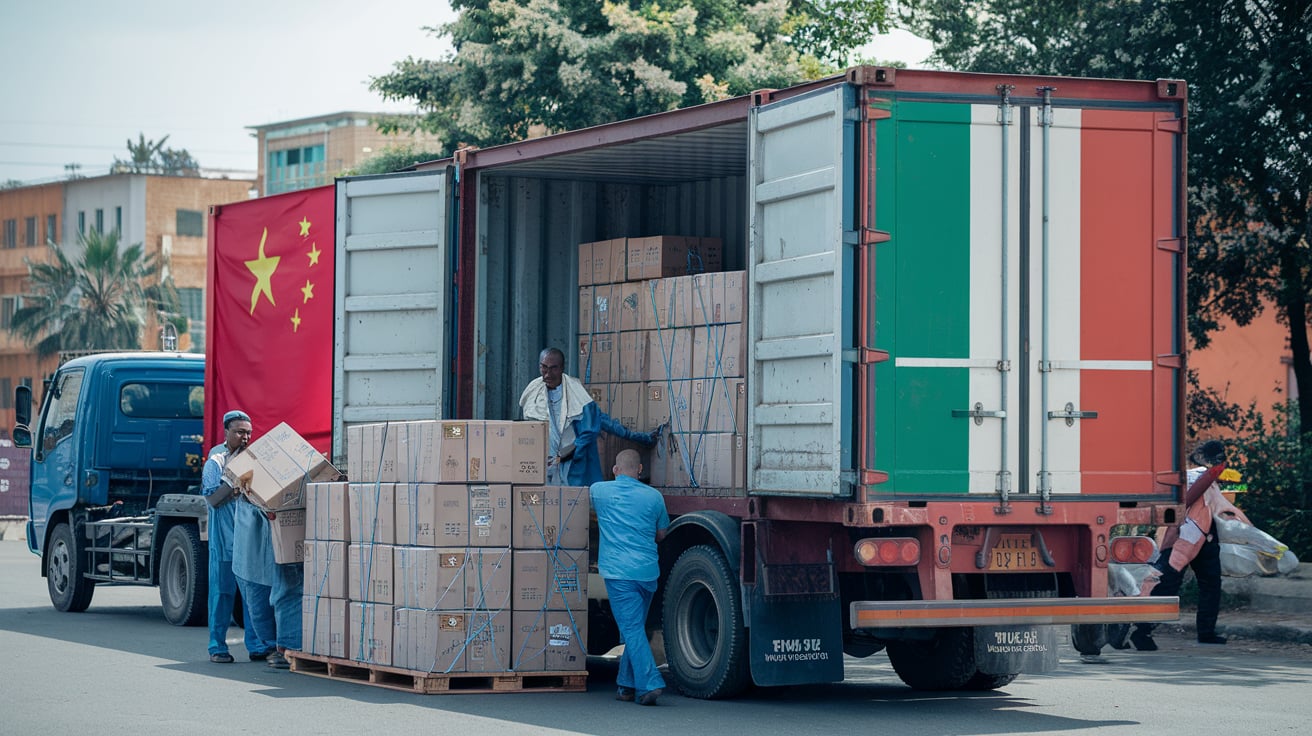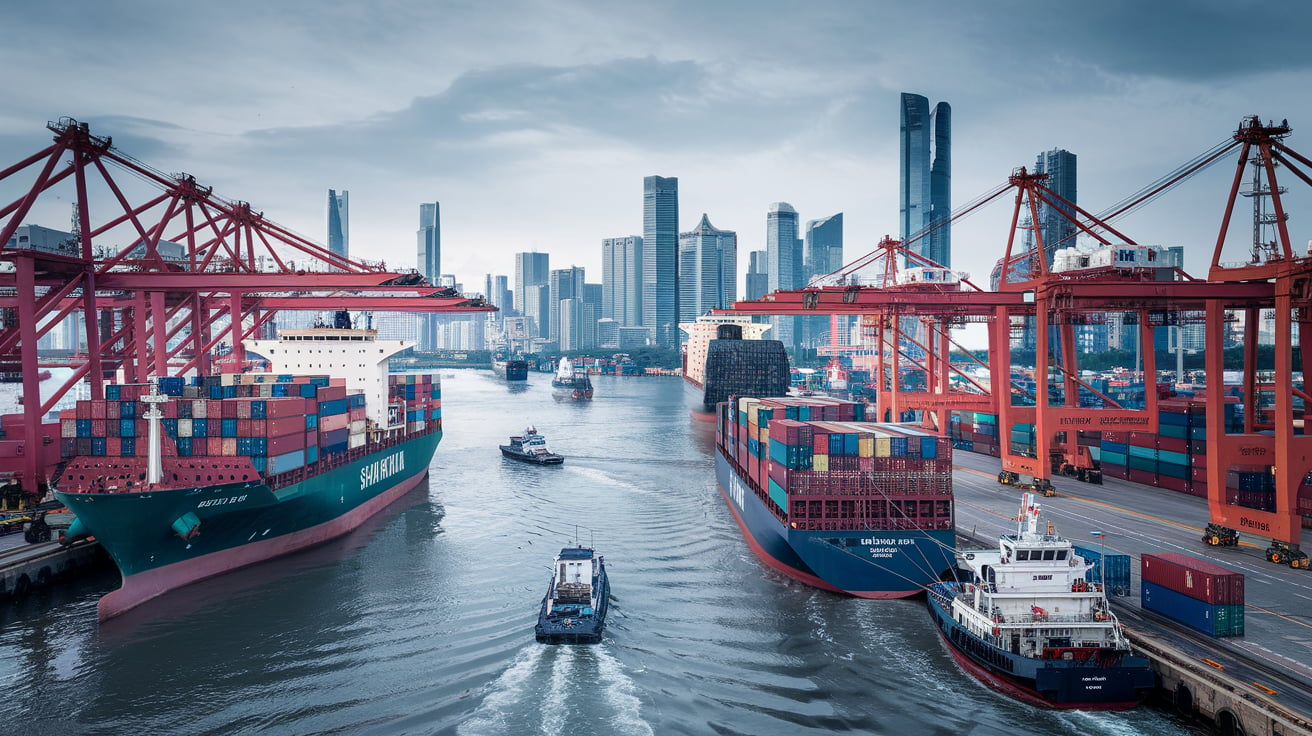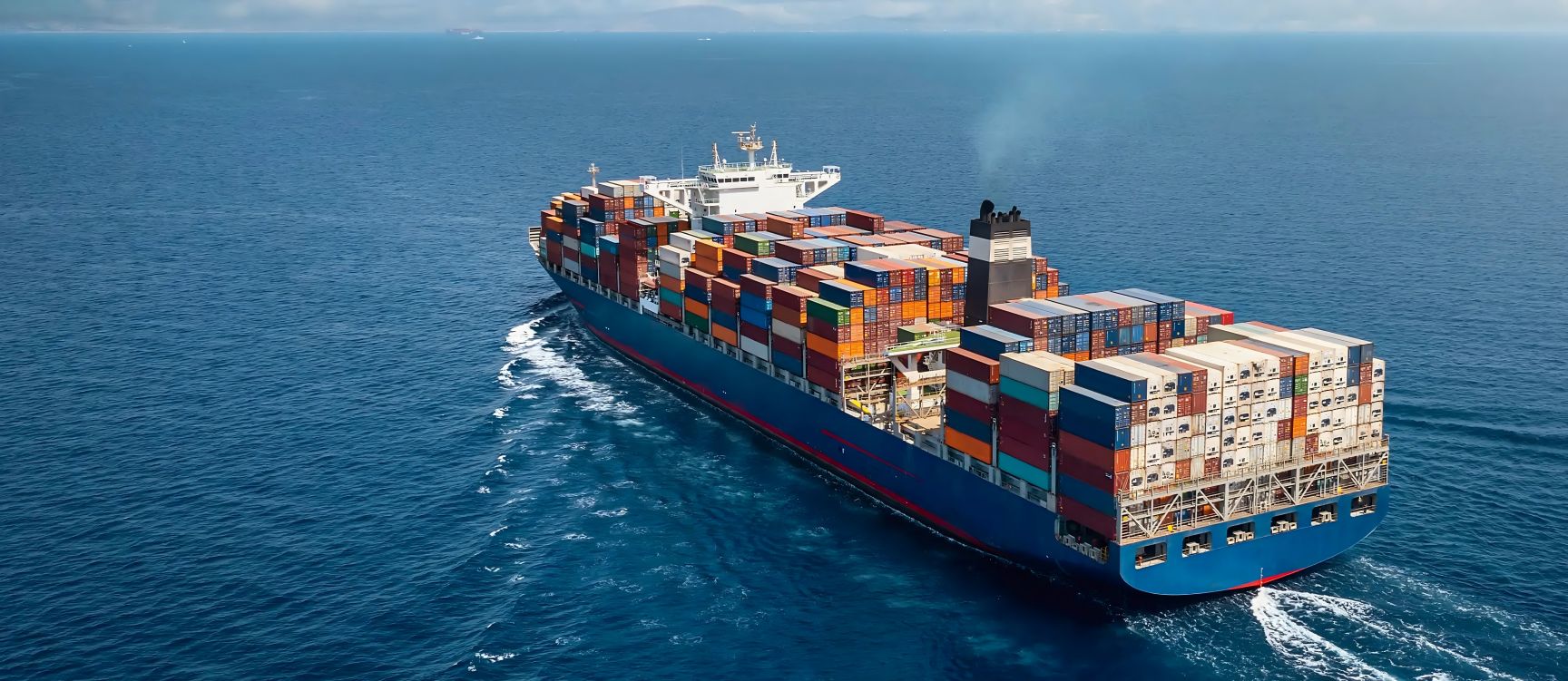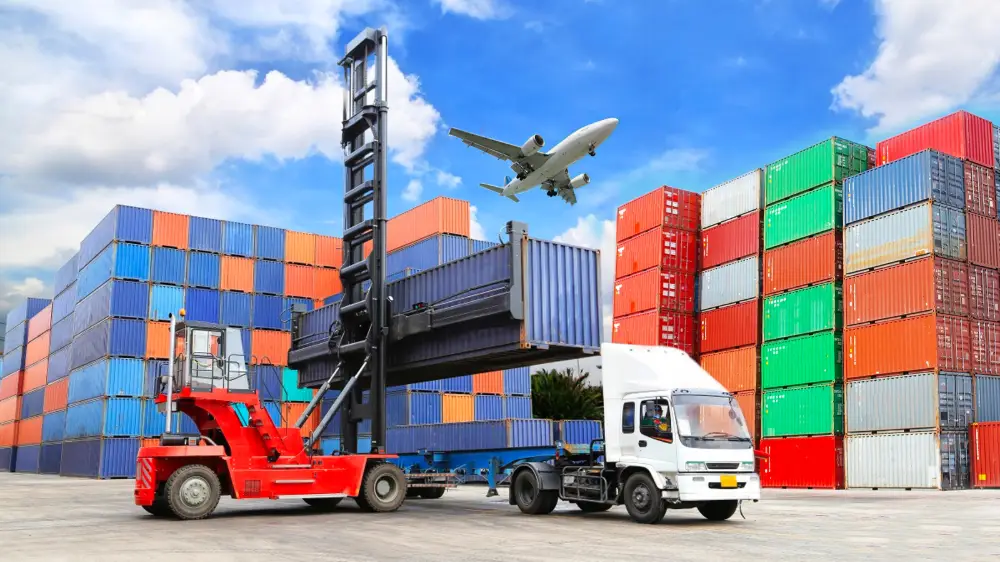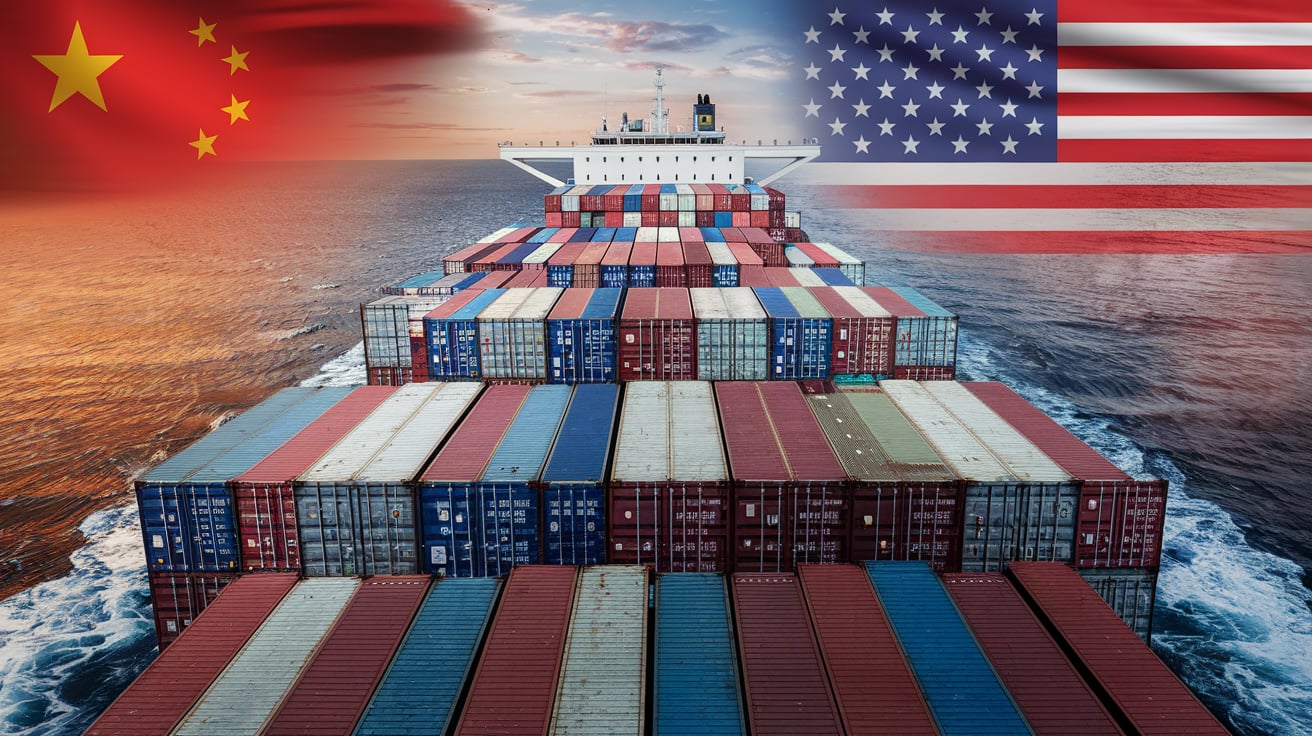When it comes to shipping goods from China to Russia, businesses face a crucial decision regarding the most suitable logistics solution. Sea freight has emerged as a highly advantageous option, offering a unique blend of cost-effectiveness, capacity for large shipments, and environmental sustainability. With the ability to transport significant volumes of cargo while maintaining reliability and reducing the risk of damage, sea freight stands out as a preferred choice for many companies. Understanding the key benefits and nuances of sea freight can empower businesses to optimize their shipping strategies, streamline their supply chains, and ultimately enhance their operational efficiency in a competitive market.
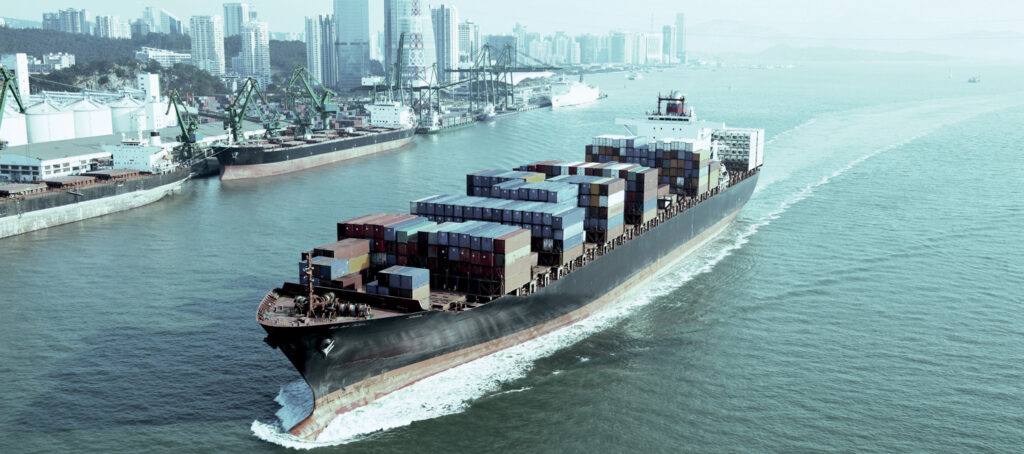
Why Choose Sea Freight for Shipping from China to Russia?
When considering logistics solutions for shipping goods from China to Russia, sea freight emerges as one of the most advantageous options. Below, we explore the reasons why businesses often opt for sea freight in this context.
Cost-Effective
Sea freight is renowned for its cost efficiency, especially when compared to other modes of transport, such as air freight. The relatively low cost per ton makes it ideal for businesses looking to manage shipping expenses effectively. According to a report from the International Maritime Organization (IMO), sea freight can be up to six times cheaper than air transport when factoring in weight and volume. This significant difference allows companies to allocate resources more strategically and invest in quality goods rather than logistics costs.
Accommodates Large Shipments
Another compelling reason for choosing sea freight is its capability to handle large shipments. Container ships are designed to carry thousands of tons of cargo, making them suitable for bulk items, machinery, and large shipments of consumer goods. This capacity ensures that businesses can transport significant quantities without the need for multiple trips, streamlining operations and reducing logistics complexities.
Versatile Container Options
Sea freight services offer a variety of container options that cater to different types of cargo. Whether you are shipping dry goods, refrigerated items, or hazardous materials, the availability of specialized containers enhances flexibility. For example, options such as open-top containers, flat racks, and reefer containers enable businesses to choose the best fit for their specific needs. This versatility also allows for easier loading and unloading processes, contributing to overall operational efficiency.
Reliable Transit Times
While sea freight is not the fastest shipping method, it provides reliable transit times with scheduled services. Major shipping lines operate on predetermined schedules, allowing businesses to plan their supply chains more effectively. Typically, shipping goods from China to Russia via sea takes between 20 to 40 days, depending on the port of departure and destination. With the right freight forwarder, such as Dantful International Logistics, businesses can ensure that their shipments arrive on time, minimizing disruption to their operations.
Environmentally Friendly
There is a growing emphasis on sustainability in logistics, and sea freight is one of the most environmentally friendly options available. According to the International Maritime Organization, shipping by sea results in a lower carbon footprint per ton-mile than air freight. As companies strive to reduce their environmental impact, opting for sea freight can be a strategic choice aligning with corporate responsibility goals.
Reduced Risk of Damage
The risk of damage in transit is a critical consideration for businesses when choosing a shipping method. Sea freight typically involves less handling compared to air freight, which reduces the likelihood of cargo being damaged during transit. Additionally, the use of robust containers designed to withstand harsh marine conditions contributes to the safety of the goods. By selecting a professional freight forwarder, businesses can access additional insurance services to further protect their cargo against unforeseen circumstances.
Types of Sea Freight Services
When selecting sea freight for shipping from China to Russia, businesses must understand the available service types to make informed decisions.
Less Than Container Load (LCL)
Less Than Container Load (LCL) is ideal for businesses that have smaller shipments that do not fill an entire container. This service involves sharing container space with other consignments, allowing multiple exporters to benefit from reduced shipping costs. LCL is particularly advantageous for small and medium-sized enterprises (SMEs) looking to minimize expenses without compromising on logistics efficiency. By consolidating shipments, companies can optimize their supply chain and maintain cash flow.
Full Container Load (FCL)
Conversely, Full Container Load (FCL) is suitable for larger shipments where businesses require exclusive use of an entire container. This option provides greater control over the cargo’s handling and reduces transit times since the container goes directly from the point of origin to the destination without multiple loading and unloading processes. FCL is often more cost-effective for large shipments, as the cost per ton decreases when the container is fully utilized. It also minimizes the risk of damage, as the cargo is not subject to additional handling by multiple parties.
In summary, sea freight offers numerous benefits for businesses shipping from China to Russia, from cost-effectiveness to flexibility in service options. Companies can leverage these advantages by choosing a trusted partner like Dantful International Logistics, which provides comprehensive and reliable freight forwarding services tailored to meet the unique needs of international traders. Explore our services, including customs clearance, warehouse services, and insurance services, to facilitate a seamless shipping experience.
Read More:
- Shipping From China To Netherlands
- Shipping From China To Spain
- Shipping From China To Germany
- Shipping From China To France
- Shipping From China to Italy
- Shipping From China To Poland
- Shipping From China to United Kingdom
Factors Affecting Sea Freight Costs and Delivery Times
When shipping goods via sea freight from China to Russia, several critical factors influence both the costs and delivery times. Understanding these factors can help businesses make informed decisions and optimize their logistics strategies.
Shipping Ports
The choice of shipping ports plays a pivotal role in determining transit times and overall shipping costs. Major ports in China, such as Shanghai, Shenzhen, and Ningbo, have different operational efficiencies and connectivity to Russian ports like Vladivostok, Novorossiysk, and Saint Petersburg. The following table compares key ports for shipping from China to Russia, highlighting their average transit times and capacity:
| Port of Origin (China) | Port of Destination (Russia) | Average Transit Time | Container Capacity (TEU) |
|---|---|---|---|
| Shanghai | Vladivostok | 21 days | 43,000 |
| Shenzhen | Novorossiysk | 24 days | 22,000 |
| Ningbo | Saint Petersburg | 28 days | 29,000 |
| Guangzhou | Vladivostok | 23 days | 19,000 |
| Tianjin | Novorossiysk | 26 days | 15,000 |
The choice of port can dramatically affect both shipping costs and transit times. For instance, selecting a port with high container capacity can lead to lower freight rates due to economies of scale.
Shipment Size and Weight
The size and weight of the shipment are significant determinants of sea freight costs. Shipping rates are typically calculated based on the dimensional weight or actual weight of the cargo. Larger and heavier shipments incur higher costs because they occupy more space on the vessel and affect overall shipping loads. Businesses should evaluate their shipment size to determine the most economical shipping option, whether Less Than Container Load (LCL) or Full Container Load (FCL).
Commodity Type
The type of goods being shipped can influence both costs and delivery times. Specific commodities may have restrictions or special requirements, particularly those classified as hazardous materials or perishable items.
-
Hazardous materials require additional handling protocols, special containers, and certification, leading to increased freight costs. Shipping lines may also impose surcharges for transporting such items due to the added complexity involved in packaging and handling.
-
Perishable items, such as food products, must be shipped in temperature-controlled containers (reefer containers). This requirement increases both shipping costs and delivery urgency, as perishable goods typically have a shorter shelf life and necessitate faster transit times.
Sea Freight Costs from China to Russia
Understanding the costs associated with sea freight from China to Russia is essential for businesses looking to optimize their logistics budgets.
Cost per Container
The rates for shipping containers vary based on the size and the specific port pairs involved in the transit. The following table outlines the typical costs associated with 20ft and 40ft containers, along with variations based on different port pairs:
| Container Size | Port Pair | Estimated Cost (USD) |
|---|---|---|
| 20ft | Shanghai to Vladivostok | $1,200 |
| 20ft | Shenzhen to Novorossiysk | $1,400 |
| 40ft | Ningbo to Saint Petersburg | $2,000 |
| 40ft | Guangzhou to Vladivostok | $2,200 |
| 40ft | Tianjin to Novorossiysk | $1,900 |
These prices can fluctuate based on demand, fuel costs, and seasonal shipping conditions. It’s advisable for businesses to obtain quotes from a logistics provider to secure the best rates.
Additional Fees and Charges
Beyond the base cost of container shipment, several additional fees and charges can impact the total cost of shipping. These include:
- Customs Duties and Taxes: Import duties vary based on the commodity and its value. Businesses must ensure compliance with Russian import regulations to avoid unexpected costs.
- Documentation Fees: Shipping documentation, such as bills of lading, invoices, and pack lists, may incur fees, especially if handled through third-party service providers.
- Handling and Storage Costs: Charges for the handling of cargo at the port and any storage fees incurred due to delays or waiting times before customs clearance can add to the overall shipping costs.
By understanding these components of sea freight costs, businesses can better prepare and budget for their logistics operations when importing from China to Russia. Working with a professional freight forwarder like Dantful International Logistics can also help streamline the process and provide guidance in managing these expenses effectively.
Sea Freight Transit Times from China to Russia
Understanding the transit times associated with sea freight is crucial for businesses importing goods from China to Russia. This section delves into the details of both port-to-port and door-to-door delivery methods, providing insight into the factors that can influence delivery times.
Port-to-Port Delivery
Port-to-port delivery refers to the time it takes for goods to travel from one port in China to a corresponding port in Russia. Typical transit times for major port pairs can vary significantly based on several factors, including shipping routes, weather conditions, and vessel schedules.
Typical Transit Times for Major Port Pairs
| Port of Origin (China) | Port of Destination (Russia) | Average Transit Time |
|---|---|---|
| Shanghai | Vladivostok | 21 days |
| Shenzhen | Novorossiysk | 24 days |
| Ningbo | Saint Petersburg | 28 days |
| Guangzhou | Vladivostok | 23 days |
| Tianjin | Novorossiysk | 26 days |
These transit times are indicative and can fluctuate based on the shipping line’s operational capacities and external factors like geopolitical conditions or port congestion.
Factors Affecting Port-to-Port Delivery Times
-
Shipping Routes: The chosen shipping lane directly impacts transit duration. Shorter routes generally lead to faster delivery; however, some routes may offer better overall efficiency despite longer distances due to fewer port calls and logistics handling.
-
Weather Conditions: Seasonal weather patterns can cause delays, especially during monsoon and typhoon seasons. Shipping lines may alter routes based on weather forecasts to ensure safety and efficiency.
-
Port Congestion: The operational efficiency of the port of loading and unloading can affect delivery times. Congested ports may experience delays due to slow cargo handling, insufficient labor, or customs inspections.
-
Vessel Schedules: Each shipping line has its schedule, and delays in one vessel’s journey can create a domino effect on subsequent shipments. Regular tracking and communication with the shipping line are essential for accurate ETA updates.
Door-to-Door Delivery
Door-to-door delivery encompasses the entire logistics process from the supplier’s premises in China to the final destination in Russia. This method is becoming increasingly popular among businesses due to its convenience, but it also introduces additional complexities.
Importance of Efficient Customs Clearance
Customs clearance is a critical component of door-to-door delivery. Efficient customs procedures can significantly impact overall transit times. Delays at customs can occur due to:
-
Incomplete Documentation: Ensuring all necessary paperwork, such as commercial invoices and packing lists, are correctly completed is vital for smooth customs clearance.
-
Duties and Taxes: Understanding and preparing for import duties and taxes can prevent surprise delays. Businesses should work with a knowledgeable logistics partner who can provide guidance on applicable tariffs.
-
Inspection Procedures: Customs may select shipments for inspection, which can delay delivery. Partnering with an experienced freight forwarder can reduce the likelihood of these occurrences by ensuring compliance with customs regulations.
Impact of Last-Mile Delivery
Last-mile delivery refers to the final leg of the logistics journey, where goods are transported from a nearby hub to the customer’s designated location. This stage is often the most time-consuming due to:
-
Urban Traffic Conditions: Deliveries in metropolitan areas may face delays due to traffic congestion, necessitating advanced route planning to optimize delivery times.
-
Delivery Window Constraints: Some businesses may require deliveries within specific time frames, impacting scheduling and logistics planning.
-
Local Regulations: Adherence to local delivery regulations, such as restrictions on truck sizes and delivery hours, is crucial to ensure timely deliveries.
Choosing a Reliable Freight Forwarder
Selecting the right freight forwarder can significantly influence shipping efficiency and cost-effectiveness. Here are essential factors to consider when choosing a freight forwarder for your China-Russia trade operations.
Experience in China-Russia Trade
A freight forwarder with substantial experience in China-Russia trade will have established relationships with local authorities and shipping lines, leading to smoother transactions. Their familiarity with the nuances of these two markets can facilitate quicker resolutions to challenges that may arise.
Service Quality and Customer Support
Assessing the service quality of a freight forwarder is paramount. Key aspects to consider include:
- Responsiveness: A reliable partner should offer prompt communication and support during the shipping process.
- Track Record: Look for reviews and testimonials that highlight the freight forwarder’s reliability and customer satisfaction.
- Comprehensive Services: A freight forwarder who offers end-to-end services—including customs clearance, warehouse services, and insurance services—will simplify logistics management.
Customs Clearance Expertise
Given the complexities of cross-border shipping, working with a freight forwarder that specializes in customs clearance is essential. Their expertise will help ensure compliance with both Chinese and Russian regulations, reducing the risk of delays and penalties.
By considering these factors, businesses can choose a freight forwarder that aligns with their operational needs, ultimately leading to more efficient and profitable logistics processes. For a smooth shipping experience, partner with Dantful International Logistics, a leading provider of comprehensive freight forwarding services tailored to meet the demands of global trade.
Dantful International Logistics Services:
- Dantful Ocean Freight Services
- Air Freight From China
- Amazon FBA Freight Forwarding
- WAREHOUSE Services
- One-Stop Customs Clearance Solution
- Cargo Insurance Services in China
- DDP Shipping Services By Dantful Logistics
- Out of Gauge Cargo Transportation Shipping Services

Young Chiu is a seasoned logistics expert with over 15 years of experience in international freight forwarding and supply chain management. As CEO of Dantful International Logistics, Young is dedicated to providing valuable insights and practical advice to businesses navigating the complexities of global shipping.


